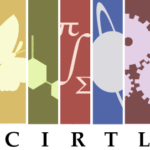Thinking STEM, Teaching STEM: A Blog Series
By Vivian Finch, CFT Graduate Teaching Fellow
 “Thinking STEM, Teaching STEM” is a blog series that spotlights some of the videos produced at Vanderbilt for the CIRTL MOOC course, “An Introduction to Evidence-Based Undergraduate STEM Teaching.” This course drew on the expertise of experienced STEM faculty, educational researchers, and representatives of university teaching centers. As previously mentioned, the series will loosely follow the thematic trajectory of the course through the following topics:
“Thinking STEM, Teaching STEM” is a blog series that spotlights some of the videos produced at Vanderbilt for the CIRTL MOOC course, “An Introduction to Evidence-Based Undergraduate STEM Teaching.” This course drew on the expertise of experienced STEM faculty, educational researchers, and representatives of university teaching centers. As previously mentioned, the series will loosely follow the thematic trajectory of the course through the following topics:
- Principles of Learning
- Student Motivation
- Inclusive Teaching
- The Role of Lectures
- Inquiry-Based Labs
This week we’re starting our last topic of the blog series: Inquiry-Based Labs! If you would like to see other installments of this blog series, please click the tag “Thinking STEM, Teaching STEM” at the bottom of this post. To access the videos featured in this series on YouTube, please the CFT’s YouTube channel or go directly to our blog playlist here.
Inquiry-Based Labs
Week 17: Inquiry-Based Labs and a Case Study in Astronomy
What was your experience when you were taking lab courses as an undergraduate? Were they obviously linked to the real world or relevant to your own life? Were they interesting or exciting? The traditional lab approach is often based on a predetermined question, a predetermined procedure, and a predetermined answer, which can be stifling for student interests in STEM disciplines.
The advantage of the inquiry-based lab approach is that it involves students in the decision-making of what happens during lab time. This type of lab approach can range regarding depth of inquiry from simply giving students the opportunity to design experiments to conducting authentic research during lab. The goal of inquiry-based lab instruction is to incorporate elements that are based on the principles of learning in STEM education.
In the following video, Dr. Cynthia Brame, Assistant Director at the Center for Teaching and Senior Lecturer in the department of Biological Sciences here at Vanderbilt University, introduces an example of an inquiry-based lab in an introductory Astronomy course, led by Dr. Erika Grundstrom, Astronomy Lab Director at Vanderbilt University. Undergraduate students in this lab determine a research question and collect data to answer that question in a single lab session and present their findings to their peers in the following lab section.
Drawing from this video, what do you think are the defining components of an inquiry-based lab approach? What do you think of the student reflections on this type of lab environment? How does this approach match up with what you are doing in your labs?
Stay tuned next week for another case study of an inquiry-based lab!
Additional Resources:
For more ideas on creating research opportunities into your lab or course, check out the CFT’s Teaching Guide on Incorporating Research into Science Courses.

Leave a Response